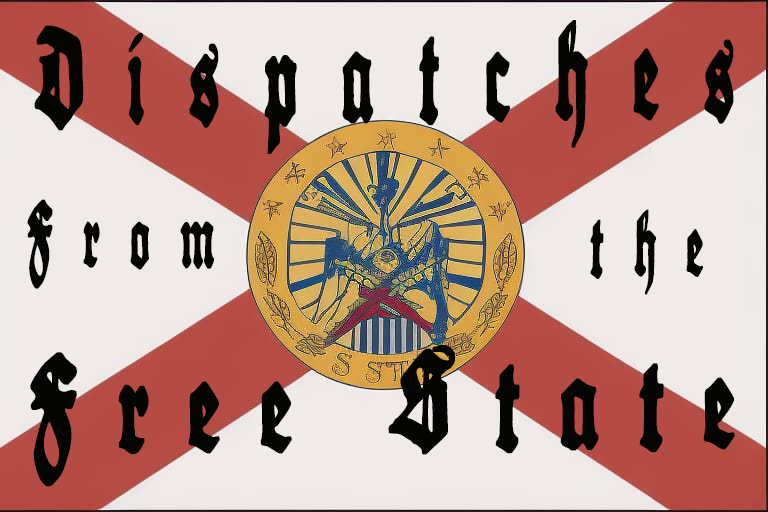Every semester I face the same challenges from students who are steeped in the the cultural awareness that much of human behavior is biologically and even genetically determined. Oftentimes in my discussions about social problems or the foibles of society I hear the comment, “it’s just human nature.” That sparks a response and a challenge from me. What exactly is human nature? Where does it come from? How is it manifest?
This is the classic nature/nurture (n/n) argument. How much of our human behaviors are biological (n/) or how much is cultural (/n)? And this is sticky ground, especially for a sociologist. Sociologists, by virtue of our training, see the social in everything. Of course we do. That’s how we are trained. We also tend to be very skeptical of claims of a biological, genetic or evolutionary explanation of human behavior, especially when such explanations tend to reinforce what we have identified as negative stereotypes, such as male dominance, or female aptitude for math.
That being said, however, there does seem to be a growing body of science that would suggest that sociology does not explain everything about human behavior, even mass behavior. That there are some n/ influences involved. Influence, however, is not causation. When scientists try to measure the influence of one factor compared to another factor with regard to any phenomenon what we are really measuring is an explanation for variance. So when the newspapers report a new finding on the genetic influence on violence, for instance, what they are really reporting is that geneticists have explained maybe 10% of what contributes to violence.
Another question that arises is how much nature versus how much nurture is involved in human phenomenon? What are the percentages? 50/50? 40/60? 60/40? Usually the class wants to compromise and suggest 50/50, not because there’s any scientific validity, but rather because 50/50 is a good conflict resolver. So is it human “nature” to want to resolve conflict with a 50/50 scale, or is this a cultural expression of game theory? Hard to say.
The reality is that it is not that simple because I would offer that many human phenomena that are influenced by n/n actually involve an overlap rather than clear divisions on two sides of an argument. It may very well be that in order for certain phenomena to be expressed there must be both natural and cultural factors at play. Where one begins and the other ends is not so much a boundary as rather a blending or shading effect.
The example that I use is height. Height in the United States is almost completely genetically pre-determined. However, genetics does not explain the full nature of height. Nutrition and health also contribute to the phenomenon of height, and these are often cultural and institutional /n variables.So I ask the seminal question: Are human beings naturally warlike? Are the efforts of the peace movement in vein because we, as human beings, are naturally pre-disposed to kill each other? And what are the obvious consequences in a world full of total weapons and weapons of mass destruction?
It’s a good question with very telling sociological implications. A must for every sociology class. In class I often get an immediate response. Yes! Human beings are, by nature, warlike. That explains the vast, bloody panorama of human history. One war after another for five thousand years. Was history really like that? Or is that simply an artifact of studying what is interesting to us, thus jumping from one war to another, creating the illusion that the history of man is the history of warfare?
As my students learn, however, sociology is not about the immediate and obvious response to an answer. Sociology is in the details. For sociologists, war is a social phenomenon involving power, institutional arrangements, cultural elements and historical components, and therefor not a biological imperative. War is hierarchical and involves divisions of labor. It’s founded on social constructs of justice and threat, even empathy for those who are being victimized.
During the discussion I often ask why it is, if people are naturally warlike, that it takes a concerted and often expensive effort on the part of a government to convince its people to go to war. We talk about the Gulf of Tonkin Resolution and the Mushroom Cloud paradigm offered by the Bush Administration. If human beings are naturally warlike, why do governments have to lie to get us involved? War, from this perspective, is a purely sociological phenomenon. Case closed?
Well, not really. War may be a social construct, but the larger issue of violence needs to be resolved. Are human beings naturally violent? And, of course, are certain human beings naturally more violent than others? This may be a little trickier. Again, the assumptions start to fly, sometimes with predictable racial overtones that it is imperative to explode.
The most likely answer to this is that yes, under certain circumstances, violence may be a natural response in human beings. When facing an unavoidable threat, it might be a natural response to strike out and fight. Often, however, I see that it is more descriptive to suggest that it is human nature to avoid and run away from the threat rather than face it head on…if one is alone. But what about when we are in a group and perceive an advantage in numbers. Is it natural, then, to turn to violence when avoidance would have been the individual option? How much of this is nature and how much of this is the sociological response to group dynamics. After all, it may very well be human nature to form groups, while the kind of group and the group dynamics may be sociological.
I also remember reading some research many years ago that attributed aggressive behavior to poor nutrition. I remember thinking, this makes sense from an evolutionary standpoint. If you have poor nutrition your body may be reading that as a lack of resources. It is, therefore, in one’s biological best interest to become more aggressive to attain greater resources for survival. However, access to resources is one of the most basic sociological motivators and determinants. Our access to resources is often defined not by the natural consequences of drought, but rather through social inequity. Again, where does biology kick in and sociology overcome? It’s difficult to say.
But here we have two examples of how aggression may be, at least to some extent, a natural phenomenon: threat to an established social group, and restricted access to life resources. Both of these phenomena have naturalistic, biological, genetic, evolutionary correlates as well as sociological influences and consequences.
We can then take a look at how power groups, such as governments, can use these very powerful phenomena to encourage acts of mass violence such as war or terrorism. By invoking fear, a natural response, governments, sociological entities, can motivate populations to perform acts that they would not be so inclined, either by nature or nurture, to do on their own.
In class we often discuss the process by which people learn to kill other people in war. The argument could be made that people, by nature, find killing other people distasteful. That’s why great effort is put in to define the enemy as being somewhat less than human. A great deal of analysis has been put into this. The process of dehumanization is a necessary correlate to war. This becomes difficult to maintain as we spend time in an occupied nation and start to see those people who were the enemy acting like human beings. I started reflecting on this after talking to vets whose job it was to conduct surveillance on the enemy. One vet stated, “I got to see them when they didn’t know I was watching. They would be laughing and crying and tripping over things, sharing pictures of girlfriends, just like my buddies.” Under such circumstances it becomes necessary to remind soldiers that the enemy is a constant threat, hidden in the general population ready to strike, thus demonizing everyone.
That warfare is contrary to human nature is betrayed by the heavy, psychological toll paid by many (some would suggest “all”) veterans. According to research conducted by the Defense Department, the best way to help veterans deal with the stresses of combat is to minimize the amount of time that they are actually in combat and maximize the time that they are living a normal life. So which circumstance is the “natural” condition of humanity?
Nature/Nurture debates are fascinating and great fun in the classroom and sure to get a response. Sociologists, however, need to allow more room for the nature aspects of social phenomenon otherwise the lessons that we can teach are muted by unrealistic explanation. By examining how biology and sociology overlaps we can reach more students and influence more minds to be aware of the very real social uses of this dialectic. If science, be it biology or sociology, has taught us anything it is that there is no clear determinism in the lives of real people.





Leave a comment